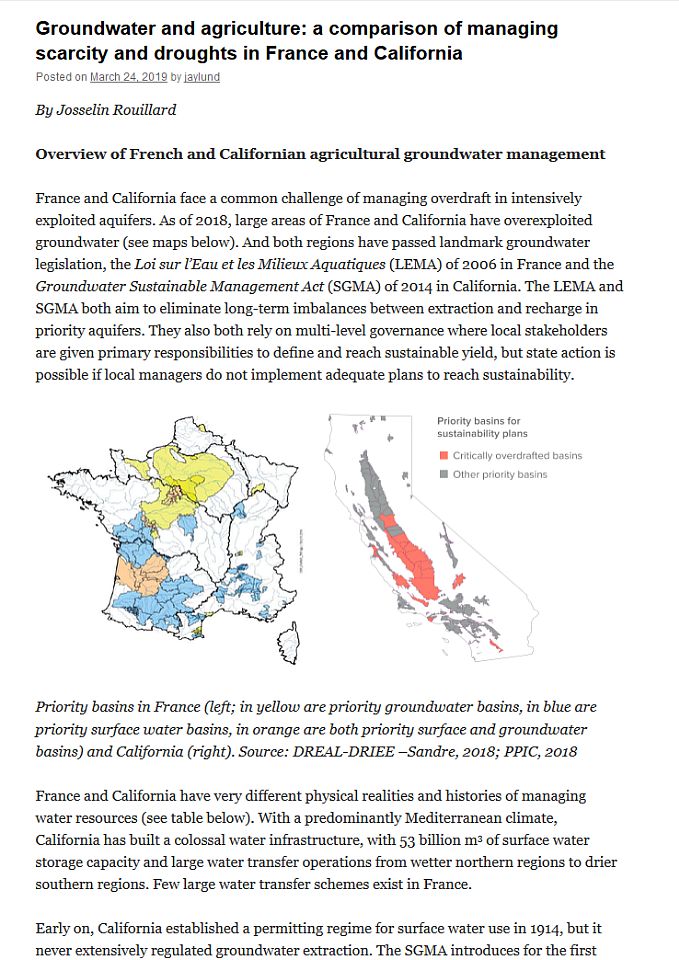From State to User-based Water Allocations
An empirical analysis of institutions developed by agricultural user associations in France
- Publication
- Citation
Rouillard, Josselin, and Jean-Daniel Rinaudo. "From State to user-based water allocations: An empirical analysis of institutions developed by agricultural user associations in France." Agricultural Water Management 239 (2020): 106269.
In a new scientific article published in Agricultural Water Management, Dr. Josselin Rouillard, Senior Fellow at Ecologic Institute, and co-author Dr. Jean-Daniel Rinaudo (Brgm) examine strategies to manage the overexploitation of water by agriculture. The research focused on innovative water allocation regimes involving strong collaborative approaches between regulators and water users.
Recent decades have seen a significant increase in water extraction, one main driver being agricultural irrigation. By adopting irrigation, farmers have boosted yields and reduced the risk of crop failure in dry years, contributing to reduce poverty and fuelling growth in many rural areas around the world. However, as river basins and aquifers become more intensively exploited and climate change intensifies and lengthens drought events, water demand can outstrip water availability. Groundwater mining is a major threat in many arid countries. In temperate regions, intensive seasonal extraction in rivers and shallow aquifers exacerbates summer low flows in rivers, leading to higher pollution concentration and the drying up of permanent streams.
However, regulating water use in agriculture in water stressed basins is a challenging task. Recent scholarship emphasises the need to combine the use of abstraction limits imposed by the State with considerable leeway to users to allocate water according to local priorities. This form of "co-management" between the State and users aims to improve the implementation of sustainable water extraction limits.
To assess the potential of comanagement, the paper focused on a reform in France that has recently adopted this model to manage water allocations in agriculture. One of the interesting characteristics of this reform, imposed by the State, lies in the fact that users had significant leeway to adapt its implementation locally. The model adopted in France is based on a collective license issued and enforced by the State. This license is held by agricultural water user groups, who are free to design their own collective rules to share water. This approach requires strong collaboration and collective action between irrigators.
The paper shows that the shift from an individual to a collective water allocation regime in France resulted in a variety of allocation rules taking into account user needs and local priorities, while, at the same time, considering water resource characteristics. The approach increased transparency on who benefits from water use and reinforces the notion that water is a common property. It provides new opportunities to share water more equitably while supporting strategic choices on crop productions and associated value chains. The French model of collective management of water allocations thus offers a fresh but valuable approach to improve the regulation of water extraction in agriculture.






